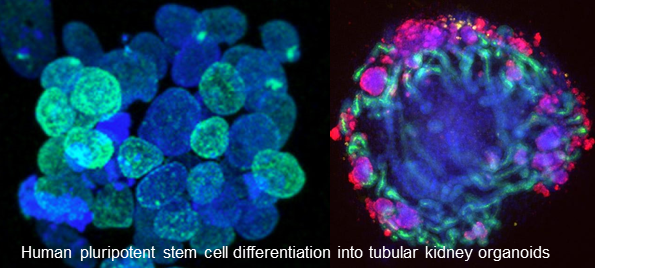Basic Science Research
The Basic Science Research Training Program is a three-year program with a first clinical year and two research years. In this track, the trainee acquires skills predominantly in the molecular, biochemical, and cellular aspects of kidney-related research, and develops an understanding of how this basic research may be transplanted from the bench to the bedside.
Most individuals undertaking laboratory research training are supported in their research years by an NIH Training Grant, "Research Training in Renal Disease", and must be U.S. citizens or permanent residents.
- Emphasis will be on the acquisition of laboratory skills, experimental design, data analysis, and an in-depth understanding of the relevant research literature
- Supplemental training and experience in Immunology, Biochemistry, Pathology, Biologic Structure, and other departments
- Options for formal coursework in molecular biology, statistics, and mechanisms of disease. Other topics may be pursued depending on trainee interest.
- Biomedical research integrity training is required to retain NIH training grant support.
We strongly encourage Ph.D.s to apply. The goals are to enable trainees to utilize their molecular and cellular skills and knowledge towards disease-based processes. Ph.D. trainees will specifically focus on kidney injury and repair.
MD/Ph.D. Curriculum
- Cell Culture basic methods with cell lines, generation of primary cells development of cell-based assays with examples of functional readouts.
- Molecular biology: from PCR methods through to molecular cloning of genes. Use of bacteria to generate copies of DNA sequencing.
- Mouse genetics: modern genetic tools and pitfalls
- Bioinformatics platforms and their uses: multiplexing, arrays, mini-arrays. Analysis of data.
- Designing experiments: controls, timepoints, timecourses, critical endpoints, basic statistical approaches
Ph.D. Curriculum
- Nephrogenesis and anatomy
- Kidney physiology
- Kidney pathologies terminologies and specialized cells of the kidney
- Kidney related gene defects in humans
- Systemic diseases that have kidney disease as a component
- Vascular and metabolic and endocrine consequences of chronic kidney disease




